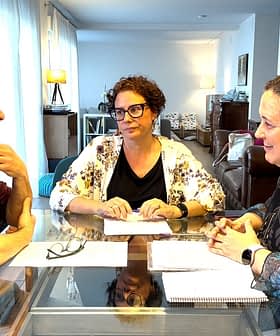Professional Olive Oil Training the Focus in Portugal
Three Universities are joining forces in Portugal and establishing courses to educate participants on various important issues concerning the production of olive oil on the mill level.
Olive fruit-pressing is a significant step to the production of the final product. Handling and processing the olive fruit within olive-pressing facilities, affect classification, market price, and the product’s life cycle.
The International University of Andalusia, the University of Jaén and the University of Évora (ICAAM, CEFAGE and NUFOR) in Portugal say that they want to contribute “to the professionalization of the olive oil sector in the Iberian Peninsula. In particular, among regions of Portugal and the Spanish regions of Extremadura near Andalusia, where the economic activities linked to the olive and olive oil production are increasing.”
The program consists of three separate semesters, each with three or more courses.
The first part is scheduled to start this week, which will cover efficient management of mills, sensory analysis and the influence of different processing steps to the sensory characteristics of olive oil.
The second group of courses, to be held between 12 and 27 July, will teach the development of high quality olive oil and the management of byproducts generated as the result of oil-extraction processes.
The final part of the training in September will deal with questions about managing marketing strategies, policies, and actions within the oil industry.
Professionals who are currently involved in the production, management and commercialization of olive oil are particularly encouraged to enroll in the program.
The initiative is sponsored by several private brands in the olive oil industry along with the Portuguese Institute of Mediterranean Agricultural and Environmental Sciences (ICAAM).
ICAAM was founded in 1991 and runs a study-farm of 285 hectares near the city of Evora, Portugal. The institute works with scientists and experts from the fields of agricultural engineering, animal science, biology, physics, chemistry, veterinary medicine and others.
The non-profit organization contributes to education programs from professional training up to the postgraduate level.









